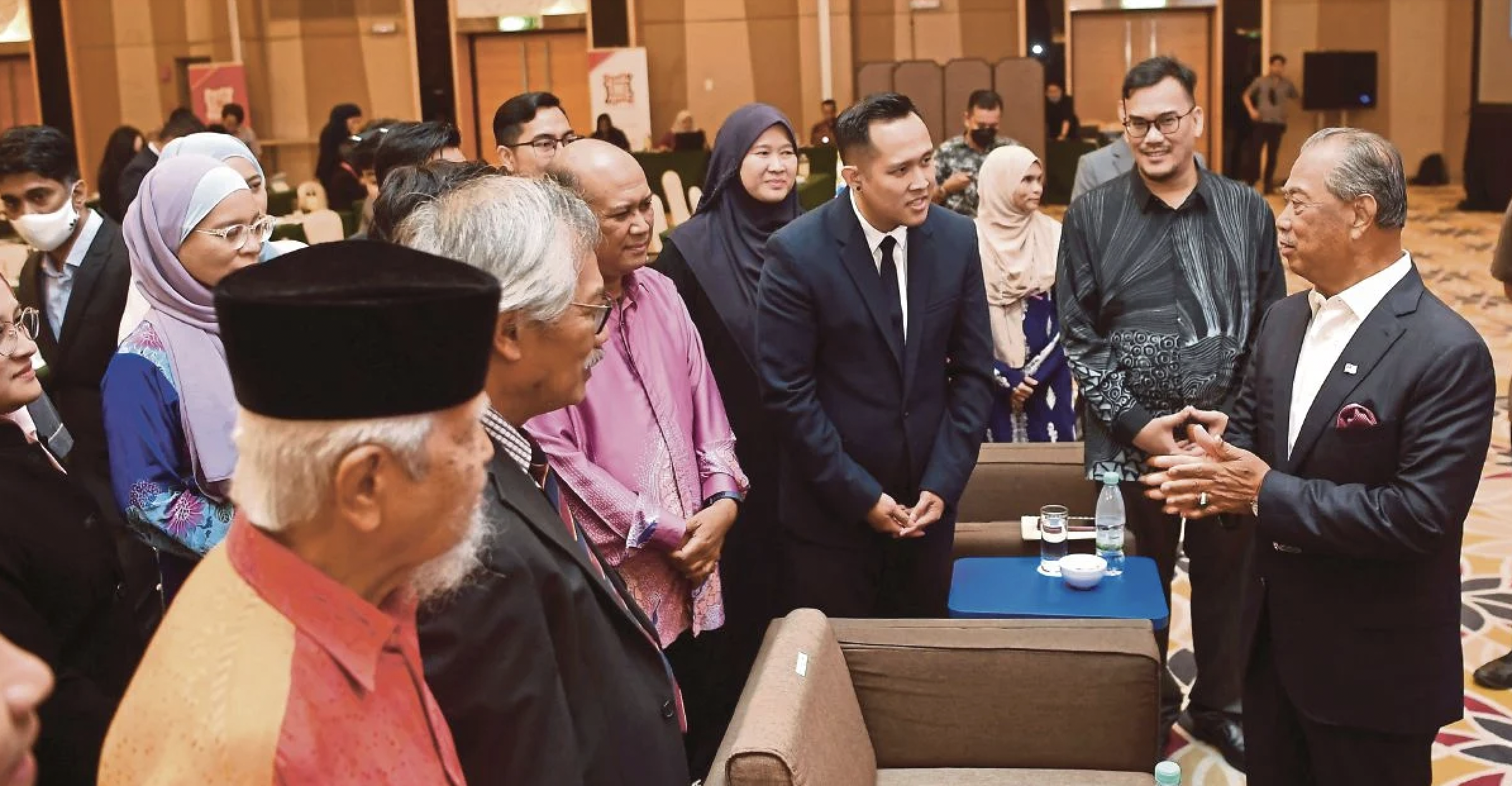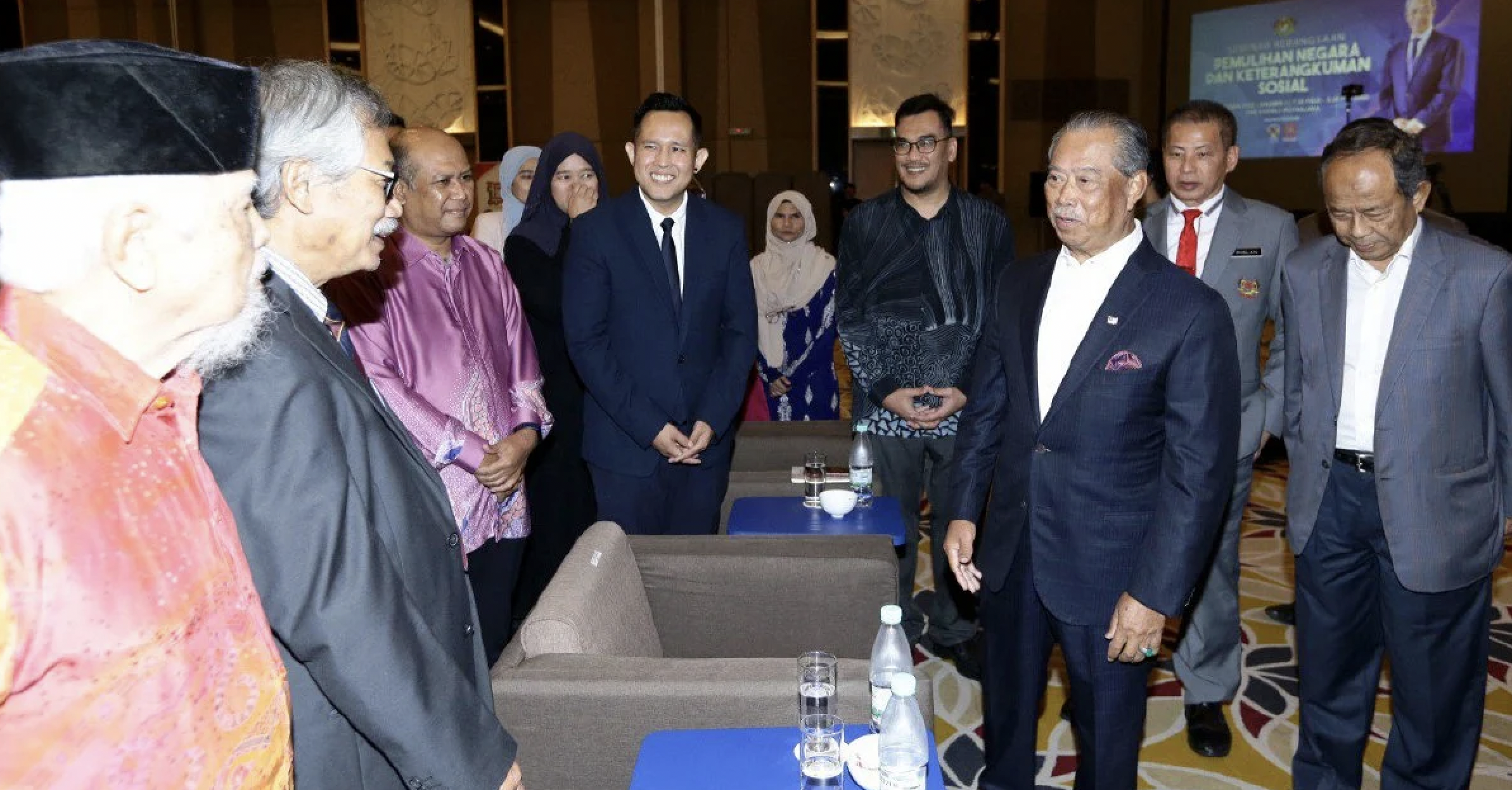Can Malaysia Withstand Further Waves Of Inflation? This Seminar Explores Possible Answers
A national database showed that 600,000 M40 households have fallen into the poor category, widening the B40 group to B60.
The National Recovery Council (MPN) and Institut Masa Depan Malaysia (MASA) recently held a one-day seminar to explore topics regarding the recovery of the country's economy
Themed 'National Seminar: National Recovery and Social Inclusion', the seminar took place on 13 October at The Everly Putrajaya, and saw parallel presentations by 12 researchers who are conducting studies under the MASA Policy Development Programme (MPDP).
They are part of a wider group of 30 researchers who have received MPDP grants to look into economic and social fields to aid the country's recovery measures.
The seminar was a timely reflection, especially considering the increasing rate of inflation coupled with the fall in value of the ringgit.
In fact, experts say that 2023 will be no less challenging, with some predicting a world economic recession, which will no doubt have implications for Malaysia's economy as well.
MPN chairman Tan Sri Muhyiddin Yassin, who gave the opening speech at the seminar, said that the government needs to come up with comprehensive and inclusive strategies to help the rakyat amidst all the economic hardships.
"According to e-Kasih data until 30 June 2022, heads of households categorised as hardcore poor have increased to almost 145,000, compared to only 45,000 in 2020.
"More worryingly, around 600,000 M40 households have fallen in to the poor category, which has contributed to the increase of the B40 group to B60 post-pandemic," he said.
According to Muhyiddin, although Malaysia's Gross Domestic Product (GDP) is growing positively and unemployment rates have lowered, these are temporary recovery signs. In fact, he believes that the actual situation of the country's economy is very challenging.
One key suggestion brought forward by Muhyiddin was a revamp of national database eKasih to streamline aid distribution to the needy
eKasih is a database of poor families created at the national level to help plan, implement, and monitor poverty programmes. However, Muhyiddin said the database that has been used by the government since 2007 is too old and needs to be upgraded.
"Today, almost all agencies and ministries provide assistance, but there are still individuals or groups who are left behind or sidelined. At the same time, some have received help from two or three different agencies.
"If, however, there was an integrated system that combines the data of eligible recipients from all agencies, the aid distribution process could be coordinated much more efficiently and transparently," he said.
Muhyiddin cited an example from Australia, where a system is automatically triggered when a person falls into poverty or is laid off from work, causing aid to be distributed immediately.
Throughout the full-day session, many topics were discussed, ranging from the issues of poverty to the sustainability of green economy.
Here are the highlights of each session:
Plenary Session: National Recovery and Social Inclusion
With inflation and rising cost of living, Malaysia needs to ensure that national recovery measures are holistic and inclusive. In this regard, various strategies have been recommended by MPN for government action. Additionally, the plenary session delved into key areas to help the economic recovery of Malaysia, which included measures to:
- Drive the business sector
- Increase the resilience of micro, small, and medium enterprises (MSMEs)
- Deal with school dropouts
- Guarantee the welfare of the B40 (now B60) group
Parallel Session 1: Welfare and Social Equity
Sub-topic: Poverty and Developing B40
Social well-being is one of the keys to the success of the Shared Prosperity Vision 2030 initiative, and needs to focus efforts on all people, especially marginalised groups. The session saw three presenters from MPDP speaking on issues related to situational poverty and B40 education development.
Sub-topic: Regional Inclusion and Stakeholder Engagement
On a similar note, this session explored a different aspect of social well-being, with three presenters from MPDP speaking on regional inclusion and public-private cooperation in the aspect of continuous poverty eradication.
Parallel Session 2: Empowering a Sustainable Economic Ecosystem
Sub-topic: Green Economy
The growth of green technology and renewable resources have the potential to generate the national economy in the future. Besides that, the Malaysian Climate Change Action Council (MyCAC) provides a centralised platform to guide the federal and state governments for climate change actions. Two presenters from MPDP shed light on how green economy could affect the country's socioeconomic development.
Sub-topic: Food Security
With world geopolitical developments, including the Russia-Ukraine conflict, it is a clear warning to Malaysia to increase our self-sufficiency rate and decrease import dependency of crops, livestock, and fruits to overcome the issue of national food security. Two presenters from MPDP further expanded on issues related to food security in Malaysia, as well as necessary steps the government should take.
Sub-topic: Empowering MSMEs and Ecotourism
Last but not least, this session touched on the importance of empowering MSMEs, which form the backbone of Malaysia's economy, as well as ways to help them thrive. Besides that, participants learnt about the sustainability of the ecotourism sector and how it has had to adapt with the changes due to the pandemic. Two presenters from MPDP shared their insights on these subjects.
All in all, 'National Seminar: National Recovery and Social Inclusion' was an eye-opening event and reminder that Malaysia needs to take a comprehensive and inclusive approach, so that "no one is left behind"



